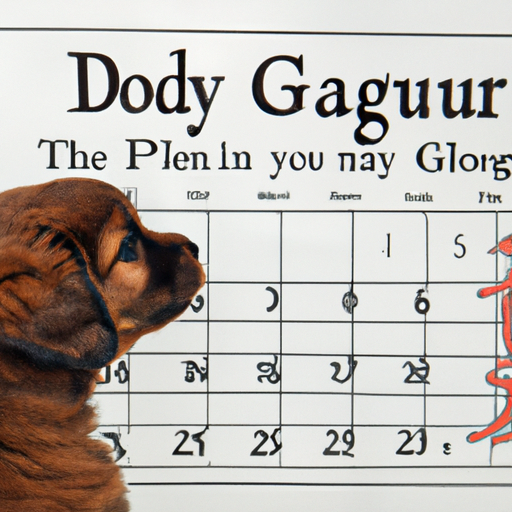As a caregiver to your adorable little fur baby, you may find yourself asking, “When does the puppy stage end?” It’s a question every dog owner has pondered at some point. But let’s unravel this mystery together, shall we?
Understanding The Puppy Stage
It’s essential to understand what the puppy stage actually entails. During this stage, your puppy is growing rapidly, both physically and mentally. It is a period of exploration, learning, and bonding. This stage is characterized by:
- High energy levels
- Curiosity and exploration
- Teething and chewing
- Potty training
- Socialization
The End of The Puppy Stage: A General Timeline
Typically, the puppy stage ends between 6 months to 2 years of age. But this timeline can vary depending on various factors like breed, size, and individual dog’s development. Here’s a general timeline:
| Size/Breed | End of Puppy Stage |
|---|---|
| Small Breeds | 9-12 months |
| Medium Breeds | 12-16 months |
| Large Breeds | 18-24 months |
Recognizing The Transition To Adulthood
As your puppy grows, you’ll begin to notice changes in their behavior and physical attributes. Here are some signs that your puppy is transitioning into adulthood:
- Slowing down of growth: Your puppy will start growing less rapidly, and their appetite might decrease.
- Change in behavior: They might become less destructive and more calm.
- Sexual maturity: Female dogs may have their first heat cycle, and male dogs may begin to show interest in females.
Factors Affecting The End of The Puppy Stage
The end of the puppy stage is influenced by various factors:
- Breed: Smaller breeds tend to mature faster than larger ones.
- Nutrition: Proper nutrition can influence your puppy’s growth and development.
- Environment: A safe, stimulating environment can help your puppy mature optimally.
How To Navigate The Transition
Navigating this transition can be challenging, but here are some tips that can help:
- Keep up with regular vet check-ups to track your puppy’s growth and ensure they’re healthy.
- Gradually transition to adult dog food as recommended by your vet.
- Continue training and socialization to ensure your dog grows into a well-behaved adult.
The Importance of Patience
Patience is key during this stage. Remember, every dog is unique and will mature at their own pace. Giving them the time, they need to grow and learn will ensure they develop into healthy, well-adjusted adults.
FAQs
Q: Can the puppy stage end earlier than usual?
A: Yes, some puppies may mature faster due to factors like breed, diet, and environment.
Q: How do I know when my puppy has reached adulthood?
A: Signs include slowing down of growth, changes in behavior, and sexual maturity.
Q: What can I do to help my puppy transition smoothly into adulthood?
A: Regular vet check-ups, proper nutrition, ongoing training, and patience can help ease the transition.
As you navigate the journey from puppyhood to adulthood with your furry companion, remember that every stage has its own joys and challenges. Embrace each moment, and soon you’ll have a well-adjusted, happy adult dog by your side.



